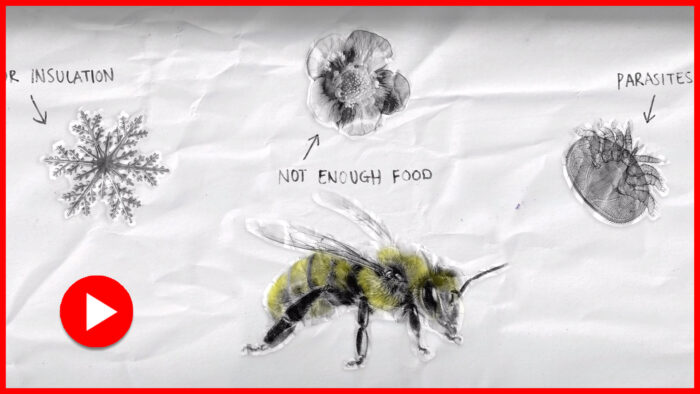Bees and their honey
Bees produce honey for bees, not humans. When nectar and pollen from flowers is in short supply, bees rely on their stored honey as their food source, which keeps them healthy and sees them through colder months.
Bees and their honey
Bees produce honey for bees, not humans. When nectar and pollen from flowers is in short supply, bees rely on their stored honey as their food source, which keeps them healthy and sees them through colder months.
Why Is Honey Not Vegan?
The honey industry involves the factory farming of bees, where they are seen as commodities and exploited for the food they work so hard to make.
Some standard practices that beekeepers use include:
Administering antibiotics to bees
Artificial or instrumental insemination of the queen bee
Replacing bees’ energy source (honey) with sugar substitutes, which lack the vital nutrients honey contains.
To extract the honey from a beehive, the hive box is opened, and the honeycomb is scraped away from the frames. The action of opening, pulling out frames and scraping away the honeycomb results in bees being squashed and killed. In order to create beeswax, the comb is extracted from the homes of bees and melted down.
WATCH: Earthling Ed explains why vegans don’t eat honey
Honey Substitutes
Honey is easily substituted with:
🌿 Maple syrup
🌿 Brown rice syrup
🌿 Date syrup
🌿 Golden syrup
🌿 Barley malt syrup
🌿 Agave nectar
Beeswax Alternatives
Alternatives to beeswax include:
✸ Soy wax – made from the oil of soybeans
✸ Candelilla wax – derived from the leaves of a small shrub native to Mexico and the southwestern United States.
✸ Carnauba wax – comes from the wax found on the leaves of the carnauba palm tree native to Brazil.
